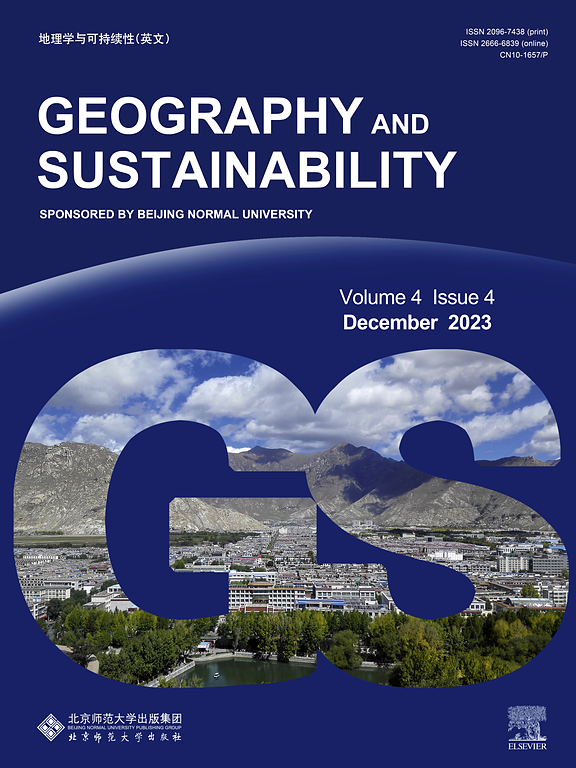The modeling framework of the coupled human and natural systems in the Yellow River Basin
IF 8
1区 环境科学与生态学
Q1 GEOGRAPHY, PHYSICAL
引用次数: 0
Abstract
A mechanistic understanding and modeling of the coupled human and natural systems (CHANS) are frontier of geographical sciences and essential for promoting regional sustainability. Modeling regional CHANS in the Yellow River Basin (YRB) featuring high water stress, intense human interference, and a fragile ecosystem has always been a complex challenge. Here, we propose a conceptual modeling framework to capture key human-natural components and their interactions, focusing on human-water dynamics. The modeling framework encompasses five human (Population, Economy, Energy, Food, and Water Demand) and five natural sectors (Water Supply, Sediment, Land, Carbon, and Climate) that can be either fully interactive or standalone. The modeling framework, implemented using the system dynamics (SD) approach, can well reproduce the basin's historical evolution in human-natural processes and predict future dynamics under various scenarios. The flexibility, adaptability, and potential for integration with diverse methods position the framework as an instructive tool for guiding regional CHANS modeling. Our insights highlight pathways to advance regional CHANS modeling and its application to address regional sustainability challenges.

黄河流域人与自然耦合系统建模框架
对人与自然耦合系统(CHANS)的机制理解和建模是地理科学的前沿,对促进区域可持续发展至关重要。黄河流域水资源压力大、人为干扰强、生态系统脆弱,区域CHANS建模一直是一项复杂的挑战。在此,我们提出了一个概念性建模框架,以捕获关键的人-自然成分及其相互作用,重点关注人-水动力学。建模框架包括五个人类部门(人口、经济、能源、食品和水需求)和五个自然部门(水供应、沉积物、土地、碳和气候),它们可以完全互动,也可以独立。利用系统动力学(SD)方法实现的建模框架可以很好地再现流域在人-自然过程中的历史演变,并预测不同情景下的未来动态。该框架的灵活性、适应性和与多种方法集成的潜力使其成为指导区域CHANS建模的指导性工具。我们的见解强调了推进区域CHANS建模及其应用以应对区域可持续性挑战的途径。
本文章由计算机程序翻译,如有差异,请以英文原文为准。
求助全文
约1分钟内获得全文
求助全文
来源期刊

Geography and Sustainability
Social Sciences-Geography, Planning and Development
CiteScore
16.70
自引率
3.10%
发文量
32
审稿时长
41 days
期刊介绍:
Geography and Sustainability serves as a central hub for interdisciplinary research and education aimed at promoting sustainable development from an integrated geography perspective. By bridging natural and human sciences, the journal fosters broader analysis and innovative thinking on global and regional sustainability issues.
Geography and Sustainability welcomes original, high-quality research articles, review articles, short communications, technical comments, perspective articles and editorials on the following themes:
Geographical Processes: Interactions with and between water, soil, atmosphere and the biosphere and their spatio-temporal variations;
Human-Environmental Systems: Interactions between humans and the environment, resilience of socio-ecological systems and vulnerability;
Ecosystem Services and Human Wellbeing: Ecosystem structure, processes, services and their linkages with human wellbeing;
Sustainable Development: Theory, practice and critical challenges in sustainable development.
 求助内容:
求助内容: 应助结果提醒方式:
应助结果提醒方式:


